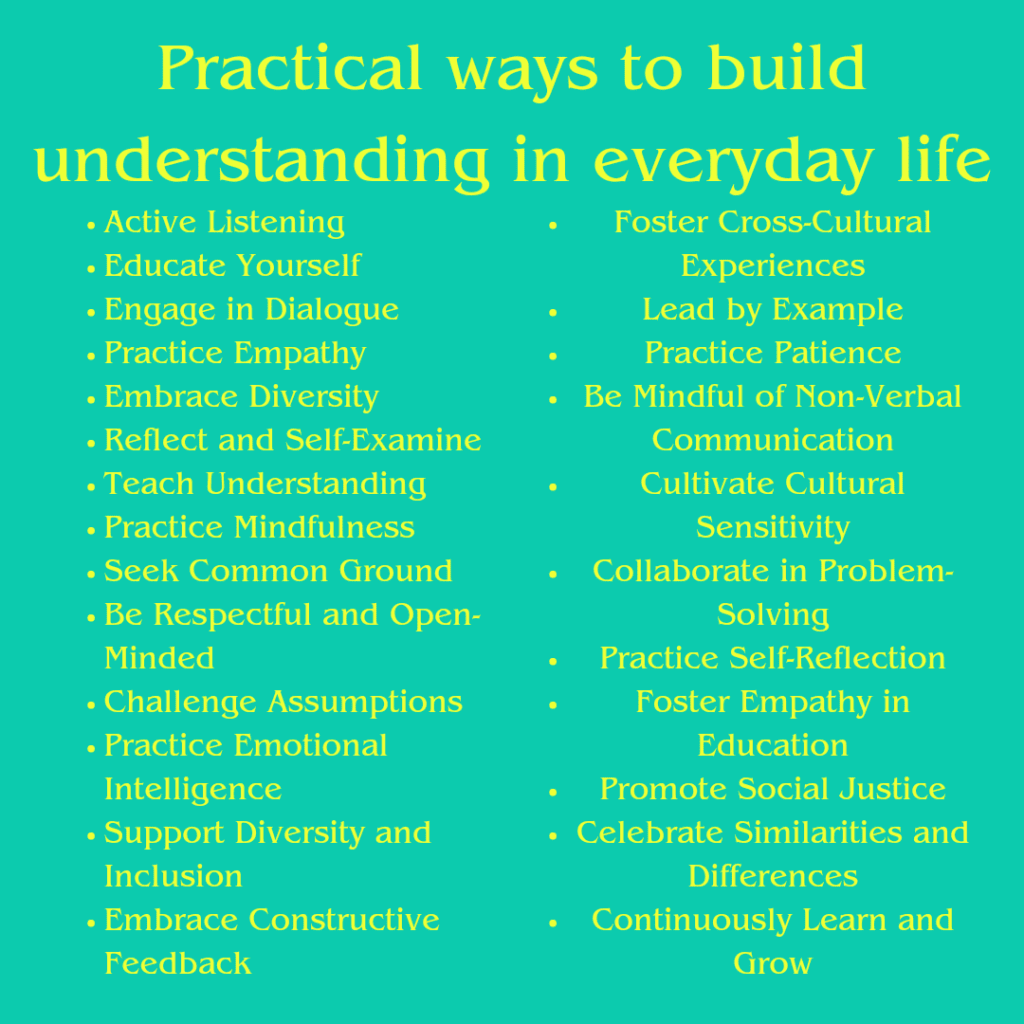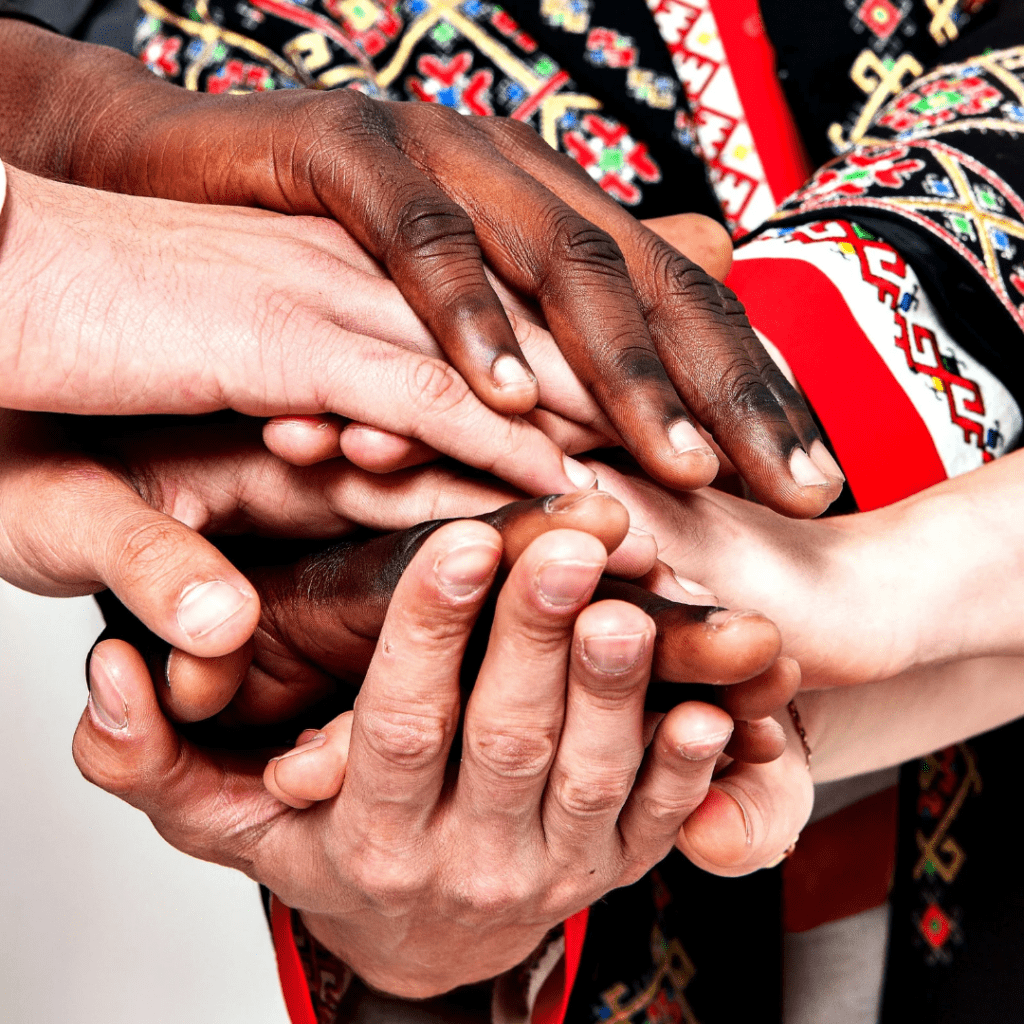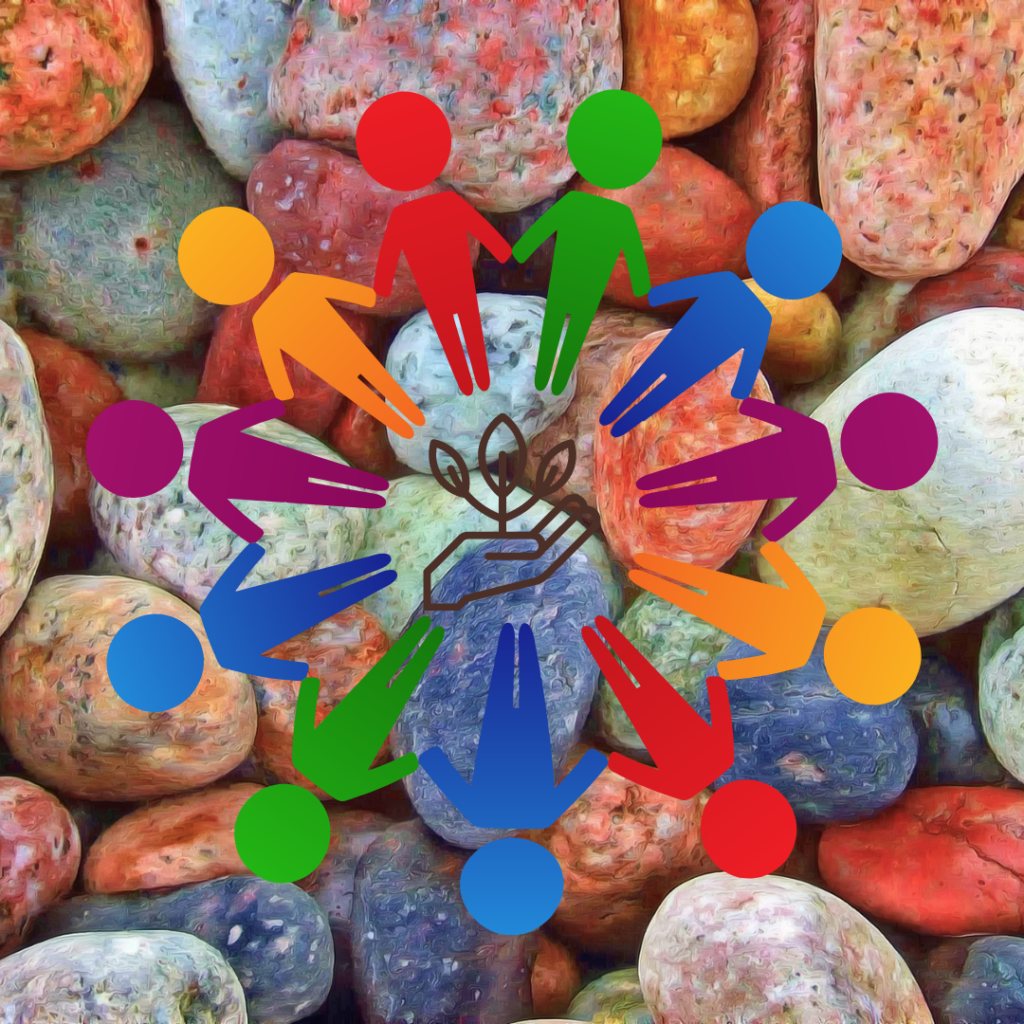Understanding: The Key to Building Bridges and Fostering Growth
In today’s increasingly diverse and interconnected world, understanding plays a crucial role in fostering harmony and personal growth. It is the bridge that connects individuals, cultures, and societies, enabling empathy, compassion, and cooperation to thrive. Whether it’s in our relationships, workplaces, or global interactions, cultivating a deeper understanding of ourselves and others is essential. In this blog post, we will explore the importance of understanding, its benefits, and practical ways to nurture it in our lives.
The Power of Understanding
Understanding is a fundamental human quality that goes beyond mere knowledge. It involves the ability to empathize, appreciate different perspectives, and seek common ground. When we genuinely understand others, we can overcome barriers, resolve conflicts, and build meaningful connections. Understanding promotes inclusivity and creates an environment where diversity is celebrated rather than feared. It enables us to navigate complex issues with sensitivity, leading to constructive dialogue and collaboration.
In our personal lives, understanding nurtures deeper relationships. By actively listening and seeking to understand, we can validate others’ experiences, build trust, and develop stronger bonds. It empowers us to see beyond surface-level differences and appreciate the shared humanity that unites us all. Furthermore, understanding ourselves is equally crucial. Self-reflection and introspection allow us to recognize our biases, strengths, and areas for growth, leading to personal development and self-compassion.
The Benefits of Cultivating Understanding
When we prioritize understanding, several benefits emerge on both individual and societal levels.
Firstly, it fosters harmony and reduces conflicts. By recognizing and respecting diverse viewpoints, we can find common ground and work towards mutually beneficial solutions. This paves the way for peaceful coexistence, whether it’s in our local communities or on the global stage.
Secondly, understanding promotes empathy and compassion. When we put ourselves in others’ shoes, we become more sensitive to their struggles and joys. This empathy allows us to offer support, lend a helping hand, and create a more caring and inclusive society. Additionally, understanding encourages tolerance and acceptance of differences, dismantling prejudices and fostering a sense of belonging for marginalized communities.
Furthermore, understanding fuels personal growth. By embracing different perspectives, we expand our own knowledge and challenge our preconceived notions. It broadens our worldview and enhances critical thinking skills. We become more adaptable, open-minded, and receptive to new ideas and experiences, which in turn leads to personal and professional success.
Nurturing Understanding in Daily Life

Cultivating understanding requires conscious effort and ongoing practice. Here are some practical ways to nurture understanding in our daily lives:
- Active Listening: Pay full attention when others are speaking, seeking to understand their thoughts, emotions, and experiences without interruption or judgment. Practice empathy and validate their feelings.
- Educate Yourself: Seek out diverse sources of information, literature, and art to broaden your understanding of different cultures, perspectives, and social issues. Challenge stereotypes and biases by continuously learning and unlearning.
- Engage in Dialogue: Initiate respectful conversations with people who hold different opinions. Approach discussions with an open mind, aiming to find common ground and learn from one another.
- Practice Empathy: Put yourself in others’ shoes, imagining their experiences and emotions. This fosters understanding, compassion, and kindness towards others.
- Embrace Diversity: Celebrate differences and actively engage with people from various backgrounds. Attend cultural events, join community organizations, and be curious about others’ experiences.
- Reflect and Self-Examine: Regularly reflect on your own beliefs, biases, and behaviors. Consider how they may impact others and strive to grow as an individual.
- Teach Understanding: Share your knowledge and experiences with others, encouraging them to embrace understanding in their own lives. Start conversations about empathy, diversity, and inclusion.
- Practice Mindfulness: Cultivate mindfulness in your daily life to become more present and aware of your thoughts, emotions, and actions. This self-awareness allows you to better understand yourself and how you relate to others.
- Seek Common Ground: Look for shared values and goals when engaging in discussions or addressing conflicts. Finding common ground creates a foundation for understanding and paves the way for productive conversations and collaboration.
- Be Respectful and Open-Minded: Approach conversations and interactions with respect and an open mind. Acknowledge that others may have different perspectives and opinions, and strive to listen and understand without immediately dismissing or judging.
- Challenge Assumptions: Question your own assumptions and biases regularly. Be willing to challenge preconceived notions and be open to revising your beliefs based on new information and understanding.
- Practice Emotional Intelligence: Develop emotional intelligence by understanding and managing your own emotions, as well as being empathetic towards others’ emotions. This enables you to navigate challenging situations with empathy and compassion.
- Support Diversity and Inclusion: Actively support diversity and inclusion efforts in your community, workplace, and social circles. Advocate for equal opportunities, representation, and inclusivity to create environments where understanding and acceptance thrive.
- Embrace Constructive Feedback: Be open to receiving feedback and constructive criticism. Feedback provides valuable insights into how others perceive and experience your actions, allowing you to grow and improve.
- Foster Cross-Cultural Experiences: Engage in activities that expose you to different cultures, traditions, and perspectives. Travel, participate in cultural events, or connect with individuals from diverse backgrounds to broaden your understanding of the world.
- Lead by Example: Be a role model for understanding and empathy in your interactions with others. Demonstrate active listening, respect, and compassion, inspiring those around you to cultivate a similar mindset.
- Practice Patience: Understanding takes time and effort. Practice patience when engaging in conversations or trying to understand complex issues. Avoid rushing to judgments or conclusions, and give yourself and others the space to express their thoughts and emotions.
- Be Mindful of Non-Verbal Communication: Understanding goes beyond words. Pay attention to non-verbal cues such as body language, facial expressions, and tone of voice. These subtle signals can provide valuable insights into others’ emotions and perspectives.
- Cultivate Cultural Sensitivity: Recognize and appreciate cultural differences. Educate yourself about different customs, traditions, and practices, and approach them with respect and curiosity. Embrace cultural diversity as a source of learning and enrichment.
- Collaborate in Problem-Solving: When faced with challenges or conflicts, seek collaborative solutions. Involve all parties in the process, actively listen to their concerns, and work together towards a resolution that considers everyone’s perspectives and needs.
- Practice Self-Reflection: Regularly reflect on your own thoughts, actions, and biases. Consider how they may influence your understanding of others and the world. Challenge yourself to continuously grow and evolve in your quest for greater understanding.
- Foster Empathy in Education: Encourage empathy in educational settings by incorporating it into curricula and teaching methods. Teach students to value diverse perspectives, engage in respectful dialogue, and develop a genuine understanding of others.
- Promote Social Justice: Understanding is closely linked to social justice. Advocate for equality, fairness, and inclusivity in all aspects of society. Stand up against discrimination and work towards dismantling systemic barriers that hinder understanding and empathy.
- Celebrate Similarities and Differences: Embrace both the similarities and differences that exist among individuals and cultures. Celebrate the richness and diversity of humanity, recognizing that our collective experiences contribute to a more vibrant and interconnected world.
- Continuously Learn and Grow: Understanding is a lifelong journey. Stay curious and committed to learning. Seek out opportunities to expand your knowledge, challenge your assumptions, and engage in meaningful conversations that broaden your understanding of the world.
In conclusion, understanding is a powerful tool that bridges gaps, fosters growth, and paves the way for a harmonious and inclusive world. By cultivating empathy, actively listening, and embracing diversity, we can create environments where understanding thrives. Through continuous self-reflection and a commitment to lifelong learning, we can challenge our biases, expand our perspectives, and foster personal and societal development.
Let us remember that understanding is not a destination but a journey—an ongoing effort that requires patience, open-mindedness, and a genuine desire to connect with others. As we embark on this journey of understanding, let us celebrate our shared humanity while embracing the beautiful tapestry of differences that make our world a richer and more vibrant place. Together, we can build bridges, foster growth, and create a future where understanding is at the heart of all our interactions.




